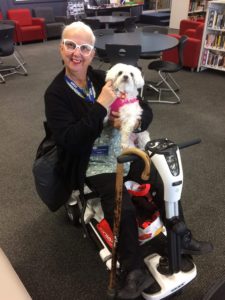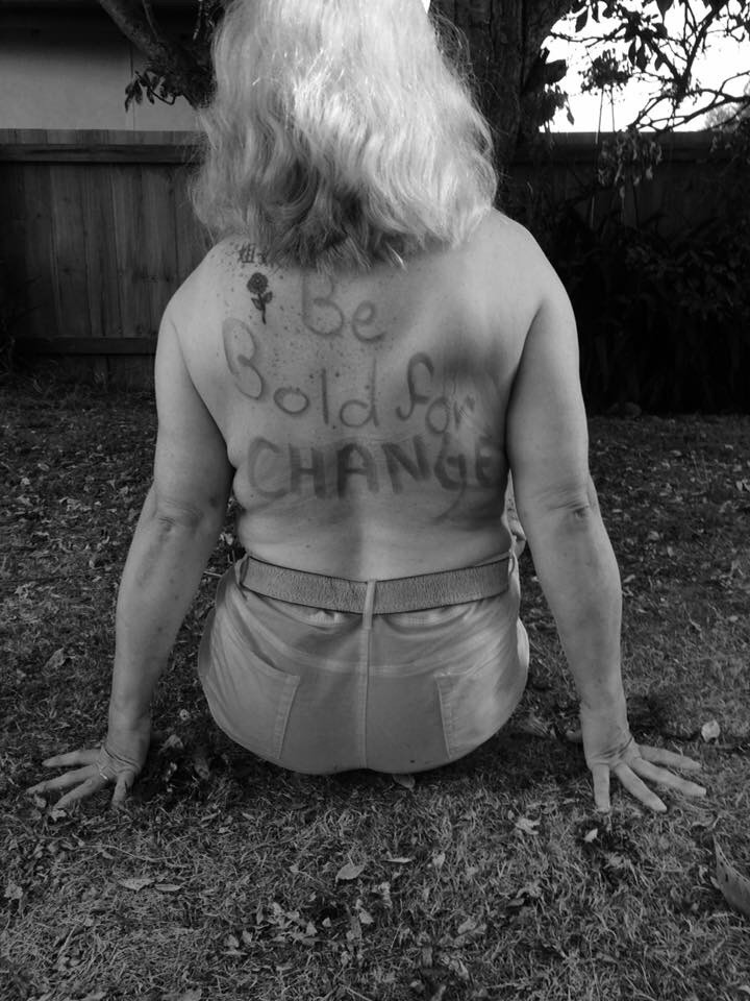I come from an isolated rural/regional community. I was born into a time when marriage was a definite career option for women, even though it was the late 1970’s, early 1980’s. It was in this time frame that I discovered that I was a girl, and learnt what it meant to be disabled, having Arthrogryposis Multiplex Congenita.
I looked different and I walked differently to the others that populated our small regional area. I still wanted to be loved, and I wanted to be married because I was never shown or encouraged that I could be more by teachers or family. Society’s belief was that I was not able.
So, I was driven on a path of partnership, of marriage and fairy tales and happily ever after! But how was I to find a partner in a society that was so judgmental, so condescending, so misogynistic and so conservative?
My ventures took me into some dark places. Dark smoky bars, and dingy clubs, not the smart clubs where all the popular abled women went. I frequented the places where the lost were found huddled together in solitarily; the working man club, the Formby Hotel, the places where at least I sort of fitted in.
Sexual freedoms were theoretically acceptable, but in reality, if as a woman you exercised these freedoms, labels were still attached. The whispers followed. I thought that sex meant relationships and that was the way to find love. Unfortunately, some men thought sex with a young, very small woman with a disability was a curiosity, a fetish for pity, or for point scoring bordering on paedophilia.
I look back now and grieve for myself, that lost soul that was not given the opportunity to learn about respectful relationships, about self-respect, about all that is wrong with society that was heaped upon my young shoulders. They robbed me of my youth in a game of ‘fitting in’ that was never possible for a disabled woman in that time and space.
Skip forward to 2020. A much older and wiser woman, with feminist ideals and the courage to speak out about injustice. I was raped. I was abused, both mentally and physically. Either intentional or not, this happened. I was a young woman with a disability disempowered, my disability setting me aside as less, as an oddity, as not worthy. But today I am a survivor, and a leader who knows we must empower younger women and girls, so they might receive the support I didn’t.

In the newspaper recently, I read of three young women who had their day in court with an attacker who coerced all three of them through Snapchat to send nudes, and then blackmailed them to participate in sexual acts of which he filmed. The perpetrator was 35 years old.
My child’s high school has an epidemic of boys collecting nudes from the girls and keeping them as souvenirs. The boys would prey on vulnerable girls. If this is still happening today, and girls, women and non-binary folks are still being exploited, what can we do?
In another recent article, I read about being proud of our bodies and that selfies are a good thing. We can take photos of ourselves and be proud of what we see. But what ‘we see’ is the intrinsic point here. Our bodies are for us to enjoy and not be judged by others. Our bodies, disabled bodies, non-binary bodies, the body of every shape, colour and size are the bodies we own.
My wish is to stop exploitation and help young women, girls and non-binary folk celebrate their bodies.
This requires our leadership, to see explicit respectful relationship education taught along-side sex education in schools. This is not a ‘do as I say and not what I do’ sort of thing, but a way of teaching our girls and women, boys and men they are valuable, they are beautiful, and they are worth more than the gaze of sexual exploitation.
We have come such a long way since my time of abuse and sexual subjugation, but then I ponder – have we? Sexism and misogyny still exist in our classrooms, staff-rooms, and boardrooms today, affecting many disabled women and girls! Only by education and speaking up as survivors will we ever find equality. We have the power if only we believe, we are beautiful, and we are strong in all our glory of diversity. That’s what leadership looks like!
Disclaimer
The blog posts do not necessarily represent the views and opinions of Women with Disabilities Australia (WWDA), and blog posts are contributions made by women, girls or non-binary persons with disability about what leadership means to them. All possible care has been taken in the preparation of the information contained in this document. WWDA disclaims any liability for the accuracy and sufficiency of the information and under no circumstances shall be liable in negligence or otherwise in or arising out of the preparation or supply of any of the information aforesaid.

